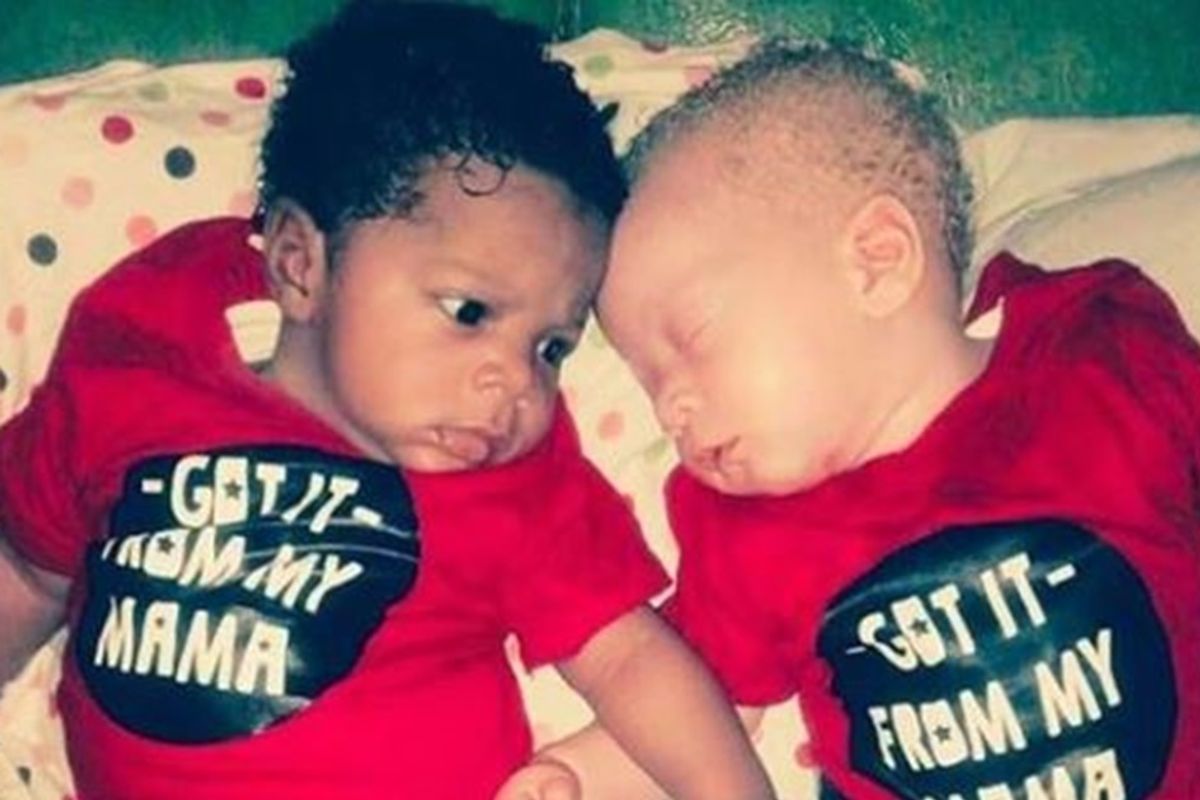
Editor’s Note: We used “black” in lowercase for our headline and the body of this story in accordance with emerging guidelines from the Associated Press and other trusted news outlets who are using uppercase “Black” in reference to American descendants of the diaspora of individuals forcibly brought from Africa as slaves. As part of our ongoing efforts to be transparent and communicate choices with our readership, we’ve included this note for clarity. The original story begins below.
On February 26, 2019, Stacy and Babajide Omirin of Lagos, Nigeria got quite the shock. When Stacy delivered identical twins through C-section one came out black and the other, white.
The parents knew they were having identical twins and expected them to look exactly the same. But one has a white-looking complexion and golden, wavy hair.
“It was a massive surprise,” Stacy told The Daily Mail. “Daniel came first, and then the nurse said the second baby has golden hair. I thought how can this be possible. I looked down and saw David, he was completely white.”
“I called my husband in so he could see what we had here,” she continued, “I didn’t understand. He couldn’t believe what he saw either. They are so adorable and it felt like we had been given a miracle.”
The boy’s father was overjoyed when he saw the unique pair arrive into the world.
“Their dad was really overwhelmed and immediately named My Twin 2 (David) ‘Golden,’ so he fondly calls him Mr. Golden,” Stacy told Bored Panda. “He was all overjoyed seeing his boys. He stood for more than 10 minutes staring at them and said he was just looking at God’s wonderful work and that they are his best gift ever.”
David was born with a condition called oculocutaneous albinism which affects one in 20,000 births each year.
It occurs when the body produces little or no melanin, resulting in a lack of hair pigment and light skin. It can also cause visual problems, but Stacy says Daniel is perfectly healthy.
According to Action on Albinism, albinos in Nigeria suffer from a “high level of discrimination.” Nigerians with albinism are more prone to live in poverty, resulting in a lack off access to education and basic healthcare.
A study conducted in 2014 found 41% of persons with albinism interviewed exhibit mental health issues related to being a person with albinism.
The twins are often the center of attention when the family goes out in public, so they started an Instagram page to create “awareness” about their unique family. “We opened an account for them because we believe they have a story to tell to the world,” Stacy said.
“I have to answer questions all the time when we are out. People say ”excuse me madam, which one of the kids is yours?”” she said. “I just say both of them are mine and people look at me as if I am joking.”
Some women have told the family that they pray at night in hopes of having twins like Daniel and David. “They are special to everyone and I love them. It feels special to be their mother because they are a special kind of twins,” Stacey said.
“I believe I am blessed and I am so proud of them.”
